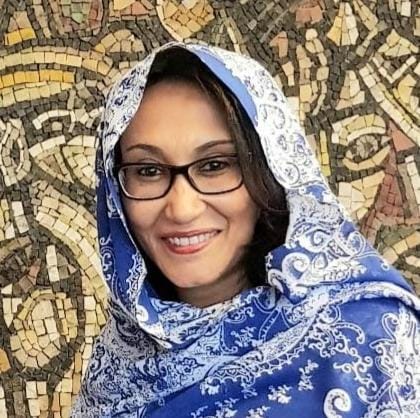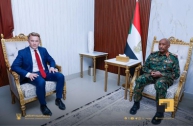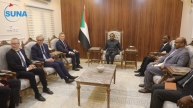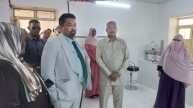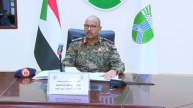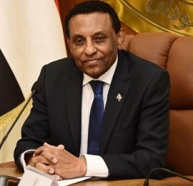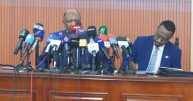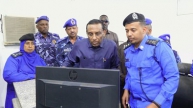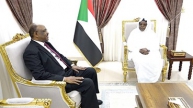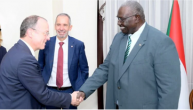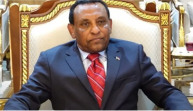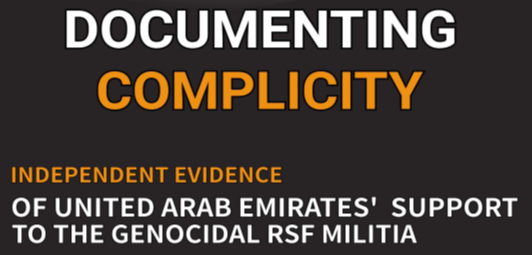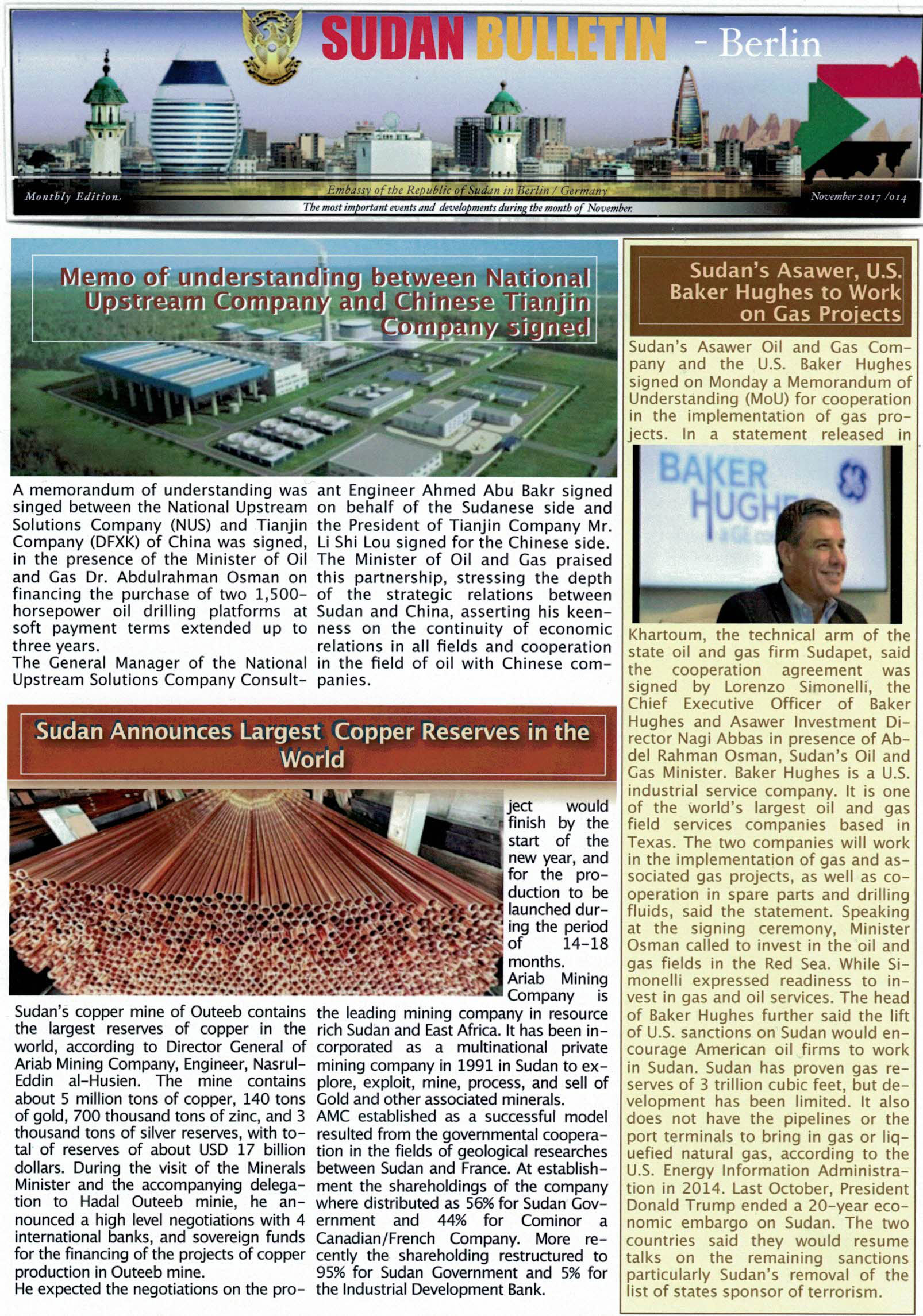Embassy of the Republic of the Sudan in Berlin
سفارة جمهورية السودان ببرلين
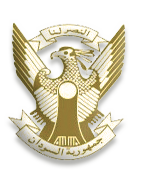
Justice Minister Affirms Sudan's Cooperation with International Mechanisms and UN Human Rights Agencies
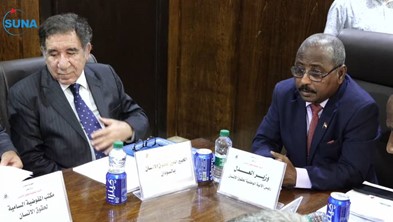
The National Human Rights Mechanism met on Monday with the UN Designated Expert on human rights in Sudan, Radhouane Nouicer, in the presence of members of the mechanism. The meeting discussed the issues raised by the expert regarding the protection of civilians, humanitarian issues, rights and freedoms, and some references related to trials.
The Minister of Justice and Head of the National Human Rights Mechanism, Dr. Abdullah Dirif, said, "We explained to the expert that we, as a government, have multiple mechanisms working to protect civilians, in addition to the National Human Rights Mechanism; we have an Advisory Council for the Protection of Civilians, which previously submitted a report to the Security Council outlining the human rights situation and the government's efforts in this regard and will submit its semi-annual report." He added that there were other mechanisms working to consolidate human rights and protect civilians. He stated that, in the field of humanitarian affairs, the expert was informed that Sudan had not received the required support in this regard, despite the systematic devastation of its infrastructure by the terrorist rebel Rapid Support Forces (RSF) militia. The United Nations and its agencies had not provided the required support and assistance.
The Minister indicated that it was hoped that UN mechanisms would provide the required humanitarian support, indicating that the support provided to Sudan did not exceed 16% of what was requested. He pointed out that this constitutes a major shortcoming on the part of the United Nations and its agencies, and that 85% of humanitarian efforts were undertaken by the Sudanese government and some friendly countries.
The Justice Minister also stated that the Sudanese people, with their compassion, solidarity, and tolerant values, had played an effective role in the humanitarian field. He said that Sudan, both government and people, have relied on these values to overcome this humanitarian ordeal. He added, "We continue to call on the United Nations and its humanitarian agencies to play their role in this regard." He said that what has been presented in this regard deserves review, and it is shameful on the part of the United Nations and its agencies, given that we, as a member state, have been subjected to comprehensive aggression and the systematic destruction of our infrastructure.
Regarding the indications provided by the expert on human rights violations, arrests, and harsh sentences, the minister said that they explained to the expert that all Sudanese criminal laws are drafted and harmonized with the constitution and international conventions ratified by Sudan. There is an entire chapter in the criminal code related to war crimes and crimes against humanity.
Dirif pointed out that lawsuits are filed based on a complaint or report, and legal action is taken against the suspect, who has the right to challenge these measures during the investigation and trial phases, in accordance with the law. He added, "The Ministry of Justice provides legal aid to any accused person through advisors and lawyers, in coordination with the Bar Association, and no accused person has been tried without being given the opportunity to do so." The opportunity to defend oneself is a requirement of a fair trial, which the judicial authorities, especially the Sudanese judiciary, are committed to.
The Minister of Justice said, "We informed the expert that open discussion of these violations without detailed information is unacceptable and unhelpful." He explained, "If we are told of information related to an accused who was not afforded a fair trial, we are prepared to review the matter in accordance with legal procedures, but we cannot decide on an unknown incident."
The Minister of Justice said, "We asked the expert if he has detailed information in this regard. We are prepared to investigate it in accordance with our humanitarian values and our obligations related to national laws and international conventions ratified by Sudan. However, without detailed information, the matter is nothing more than idle talk."
The Minister also responded to the expert's testimony regarding the harsh sentences, saying that this description is not appropriate in the law. There is no harsh or non-harsh punishment. Any accused against whom sufficient evidence exists beyond reasonable doubt is punished in accordance with the legal text they violated and the stipulated penalty, taking into account the principle of non-harsh punishment. Individualization of punishment. Dirif stressed the importance of exchanging information in the field of human rights and obtaining his information from official sources. He said, "We also explained to him that we desire to end the fact-finding mission," and to support national mechanisms working on human rights and benefit from national cadres in this field, especially since the United Nations is suffering from a scarcity of resources. It is better to rationalize these mechanisms by supporting national mechanisms to carry out their duties.
The Minister explained that the meeting touched on a very important issue: the classification of the rebel militia as a terrorist group, explaining that it is unacceptable to equate the national institution, represented by the armed forces, with the terrorist rebel militia. He stated, "We demand in all statements and communications that it be classified as a terrorist militia in accordance with international conventions and to achieve the principle of justice," especially since the reports submitted to the Security Council by the Committee of Experts and statements issued by the US State Department and non-governmental organizations all confirmed that the terrorist rebel militia committed war crimes and the crime of genocide, which are crimes whose perpetrators are classified as terrorists according to international conventions and norms. Dirif added that The meeting also addressed the countries that support and arm these militias. This is in violation of Security Council Resolution 1591/2005, as documented in reports submitted to the Security Council. Therefore, there must be a clear and explicit condemnation of these countries, both officially and directly, especially the UAE and Chad. It would be inappropriate to refer to this indirectly, as this support is one of the main reasons for the prolongation of the suffering of the Sudanese people. There are countries that have violated international conventions regarding refugees, including Chad, which prevented Sudanese certificate students from sitting for exams. This is in addition to the attacks that occurred against refugees in Ethiopia and Uganda. There must be a clear condemnation in this regard. At the conclusion of the meeting, the Minister of Justice, Head of the Mechanism, emphasized cooperation with all international mechanisms and United Nations human rights agencies. He said, "We demand justice and fairness for Sudan's just cause, and we hope that the expert will take our observations and statements seriously so that this constructive cooperation can continue."
The Latest Sudanese News & Press
